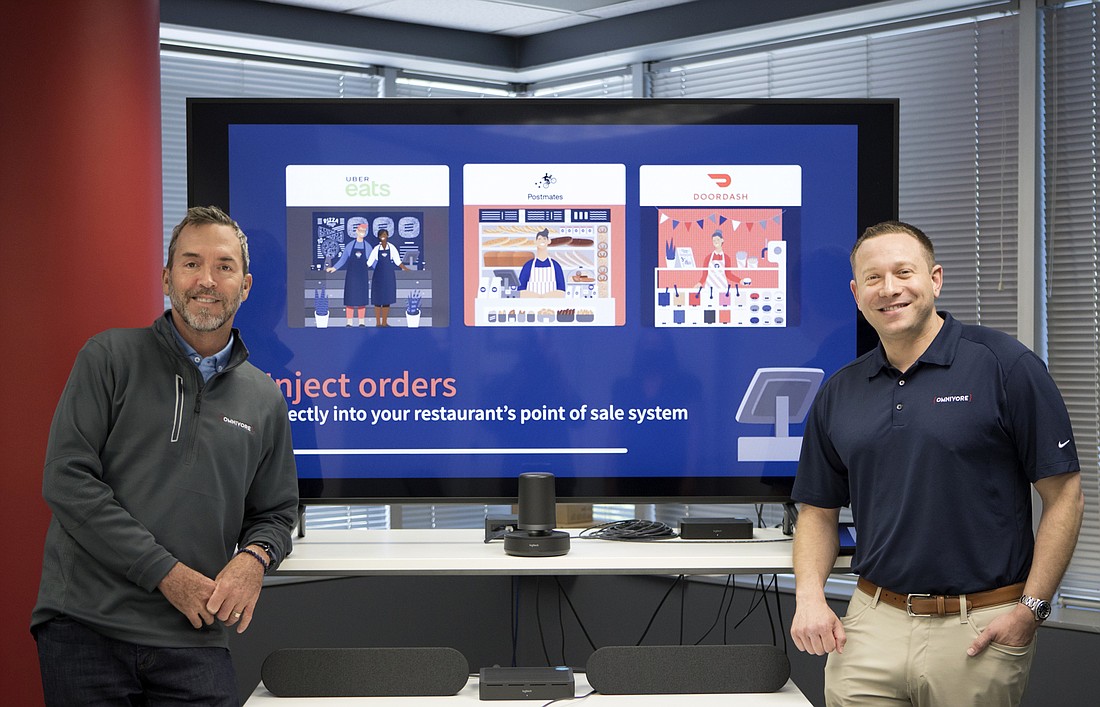- February 2, 2026
-
-
Loading

Loading

Clearwater point-of-sale technology company Omnivore is on the cutting edge of some popular software applications designed to bring efficiency to the restaurant industry. But that doesn’t mean CEO Dan Singer believes the robots are about to take over, with Siri serving a pizza or Alexa taking cocktail orders.
“It’s not going to be robots everywhere,” Singer says. “You will have people working in restaurants. Restaurants won’t be totally run by robots.”
The space in the middle, between futuristic technology and human touch, is where Omnivore is having something of a moment, bringing its Application Programing Interface (API) to some 25,000 restaurant locations nationwide. Its software comes at the right time, too, given the multiple shifts the restaurant industry has taken during the pandemic to reach customers without sacrificing customer service or brand image.
“We are having a good growth year and are expecting more next year,” Singer said in a late November interview. Executives decline to disclose revenue data, saying previously the company does in the range of $5 million to $10 million a year. “‘Everyone in restaurants is trying to adapt to new models and technology. We are uniquely positioned to target this market.”
‘Everyone in restaurants is trying to adapt to new models and technology. We are uniquely positioned to target this market.’ Dan Singer, Omnivore
Company officials say the firm’s API provides restaurants more choices and flexibility in the technologies running their businesses. It also allows restaurants to quickly test and integrate new technologies for contactless ordering, loyalty programs, pay-at-the-table and more. And it works with third-party delivery systems. “We want to help our restaurant operators have less friction with technology,” Singer says.
While Singer projects a robust 2022, including hiring at least 10 people, which would push the total payroll to more than 50 employees, 2021 was also pretty busy. First, Singer was named CEO in March, promoted from COO. The company also had some big sales wins in 2021, bringing on a list of new brands that includes Texas de Brazil, Urth’s Cafe, Eddie Merlot’s, Resorts World and Anthony’s Coal Fired Pizza. Omnivore now provides its Menu Management (MMS) system for those clients.
That kind of technology is what Omnivore envisioned back in 2013 in Hayward, California, outside San Francisco. Co-founders Mike Wior and Mike Taczak, with experience in app development, software and cloud-based programs, started Omnivore to solve what was then a big problem for restaurants: the technology in point of sale systems was singular, and didn’t communicate well with other vendors and suppliers.
The chairman of Omnivore is former Outback Steakhouse co-founder Chris Sullivan, who has a stake in several hospitality businesses, including Metro Diner. Sullivan joined Tampa commercial real estate entrepreneur Lee Arnold, area tech investor Arnie Bellini and insurance executive Lowry Baldwin in investing $3.6 million in Omnivore in May 2020. And that investment followed a late 2018 Series A funding round, where the company received $13 million from some A-list entities, including The Coca-Cola Co. and Performance Food Group. Tampa Bay Lightning owner Jeff Vinik also participated in that funding round. The company moved to Clearwater in December 2019.
In addition to client wins, Omnivore took a big step in its evolution in 2021 when it released a set of free features under its Omnivore Connect program. “Some of the most popular uses for Omnivore Connect include labor and scheduling, loyalty, payment, delivery and online ordering,” Singer said in a Sept. 8 statement that announced the move.
The move, which officials hope will ultimately lead to more and bigger companies entering the Omnivore orbit, coincided with the industry getting back to trade shows — a key for Omnivore to get in front of decision makers. Company executives didn’t attend any trades hows the first six months of 2021, but in the second half they went to at least four, including one in Dallas. “It was really good to meet people not on zoom,” Singer says.
One thing Singer says would not be good — and one of his up-at-night worries — is another prolonged COVID-19 lockdown situation, where restaurant capacity is squeezed and customers shun dining out. Yet just like the initial phases of the pandemic led to unforeseen industry shifts, Singer’s also thinking long-term for Omnivore’s capabilities and where the company goes next. That especially includes the next frontier of restaurant delivery: drones.
“The drone stuff is something really interesting,” Singer says, “and something we’re really keeping our eye on.”File. Shane Whitlatch And Dan Singer are at the helm of Clearwater-based Omnivore, a point-of-sale technology company for the restaurant industry.
In 2021, many companies discovered new ways to adjust to the pandemic. These nimble entrepreneurs believe that know-how — and guts — will be a key factor for continued success in 2022. Click the links below to read more about the Business Observer's 2021 newsmakers.